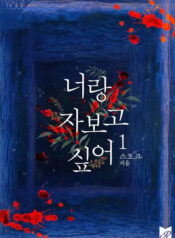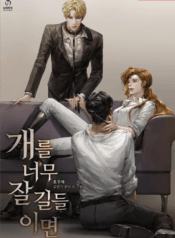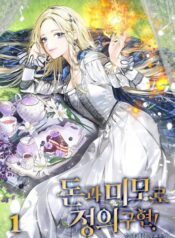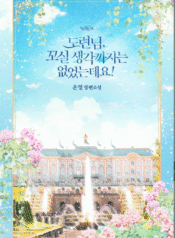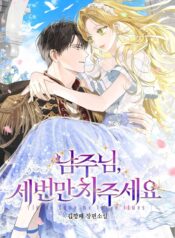Jurgen opened his briefcase and pulled out three photographs, tossing them at my feet. I couldn’t even blink as they fell into the snow.
“See for yourself.”
My vision blurred. Kneeling, I picked them up one by one with trembling hands, brushing away the snow that clung to them. The first photo revealed my eldest brother—the one I had parted from so long ago—captured in stark black and white.
“H-how did you… where did you get this…?”
I had never told anyone about my brother’s imprisonment. No one but Archum. And Archum would never have spoken so lightly of such a thing, least of all to Jurgen.
Then had Jurgen investigated me? No—wait. He had just said my eldest brother was dead. What could that possibly mean?
“Jurgen… explain. Tell me what happened. How do you have this photo of Seryozha?”
Jurgen stepped closer. Tilting his head slightly, he reached out and slipped the rose-patterned scarf from around my hair. The winter wind struck my exposed ear, stinging it raw with cold.
I forced myself to think rationally. Had he bribed the prison camp officials just to find out where my brothers were? But why?
The men in the blurred black-and-white photos were undoubtedly my brothers. They were so gaunt and withered that I almost wished I could deny that they were them. My knees buckled and I nearly collapsed, but he caught me and held me upright firmly.
“Jurgen… why are you prying into my family?”
I had thought him a strange man for three years. Yet, at times, we had spoken comfortably. Sometimes he even felt like a friend. So part of me almost believed that he might have done this for my own good.
“Who knows. Perhaps out of hatred.”
But the word he chose was hatred. Not for me. Not for my sake. Hatred.
“Hatred? What are you talking about…?”
His gloved hand brushed against my cheek. Then, with deliberate ease, he released the silver hairpin that had held my locks in place. My long, blonde hair tumbled down in a heavy cascade, veiling my face like a curtain.
I was frozen in confusion, unable to make sense of any of this. I stood there, stiff and bewildered, watching him offer a dazzling smile and murmur something.
“Come to me. I’ll be waiting.”
✹✹ ✹✹ ✹✹ ✹✹ ✹✹
“Svyeta, you’re taking a half-day? Are you feeling that unwell?”
My complexion must have looked very pale because Mr Smirnov thought I was unwell. I lowered my gaze to avoid his concerned look, and he let out a deep sigh.
“If you were really unwell, you should have said something earlier.”
Cold sweat trickled down my cheek. Just holding back tears was overwhelming; I couldn’t offer him any explanation at all.
“All right then, but you must see a doctor. You really don’t look well.”
“Yes… I’ll head out now. I’m terribly sorry, Mr. Smirnov.”
“No, no—you don’t need to apologize. Go on. Quickly.”
I didn’t even have time to say goodbye properly before I staggered out of the repair shop.
Jürgen was waiting for me outside with his arms crossed against the wall. When I emerged, he moved away and walked towards his car. He opened the driver’s door and tossed me the keys.
“Get in.”
With my legs trembling, I managed to take the car keys from him as I walked towards his car. I unlocked the passenger door, climbed in and leaned back as the world spun wildly around me.
“Where shall we go? Your house? A restaurant? A café?”
“Anywhere is fine.”
“Then we’ll go to your place.”
Jürgen took the keys from me, put them in the ignition and started the engine. As the car pulled away, I stared blankly out of the window.
“Did my eldest brother really die?”
“Not long ago.”
“How did he die?”
“Pneumonia.”
His flat, emotionless words sent a shiver down my spine. Outside, it was still snowing.
“He could have escaped the camp. They said sometimes people manage to get out.”
“If that’s what you want to believe, then believe it. Believe your brother escaped and is living somewhere out there.”
When I didn’t respond, he let out a thin laugh. Under different circumstances, I would have thought his reaction outrageous, but I was too numbed by the shock of my brother’s apparent death to realise how cruel he was being.
“Svyeta, have you ever been to a camp?”
“……”
“Even if you haven’t, you’ve heard how harsh the conditions are. Especially in winter like this. Every day, dozens die of pneumonia alone.”
I clutched my aching head and groaned. I couldn’t understand a word he was saying. I’d recently sent a package containing sausages, dried biscuits and a letter to my eldest brother. I thought it strange not to receive a reply, but it never once occurred to me that he might already be dead.
“From what I understand, the political prison camp where your brother is being held sends out letters every Monday. Sergei died on Tuesday. You should receive notification in the post by next week.”
My eyes flew wide as I turned to face him, staring at his profile in disbelief. How could he speak about someone else’s misfortune with such detachment? Had Jürgen always been this cruel?
I no longer knew what to believe. Only two weeks ago, I had been exchanging letters with my brother. He had promised that he would hold on and not give up hope. And now I had learned that he had died alone in the camp from pneumonia.
“Don’t you want to save your other brothers, at least?”
“…What do you mean?”
“Marry me. Then I’ll see what I can do.”
Seryozha was sentenced to three years in a labour camp. However, he and I both knew that he might never be released, even after thirty years.
In the political prison camps, prisoners were given one false charge after another, resulting in their sentences being extended indefinitely. They were forced to build roads and lay railway tracks, working in temperatures below minus thirty degrees with no shelter from the wind. After such backbreaking toil, they were given food barely fit for livestock: just watery kasha (buckwheat porridge).
The moment Mother learned that my brothers had been sent to the camp, she had screamed. “Better to have been shot like your father!” she had wailed. And all I could do was sob beside her, powerless.
Even after losing both my parents and watching my brothers being taken away, I had survived. I clung to the empty hope that one day, somehow, I might free them. But how could I? It was nothing more than a delusion, a way to comfort myself. I had no power to save them.
And yet, just now, Jürgen had said…
“If I marry you… you’ll take them out of the camp?”
Tears spilled hot down my cheeks.
“Is that… is that really all it takes?”
It was too easy. If marrying someone could free my brothers from the Gulag, I would do it a hundred times over without hesitation.
I took the photographs that Jürgen had thrown at me out of my worn bag. With numb fingers, I flipped through them until I placed Seryozha’s picture on top.
Gaunt. Exhausted. This was not the brother I remembered.
The man I knew had a proud bearing and loved horses. He would ride for hours across green fields. Now, though, only a hollow, shadowed face remained. No — even that brother was gone. They said he was dead.
My brother no longer existed in this world.
I broke down, weeping.
I believed that, once the war ended, we would finally find happiness. However, when it finally did, the people rose up in revolution instead. They called it ‘the people’s righteous fury’, praising the uprising. I did not fail to understand their anger. Yet I hated the Communists with all my soul.
The hidden cross around my neck pressed hard against my chest, as though piercing my heart.

